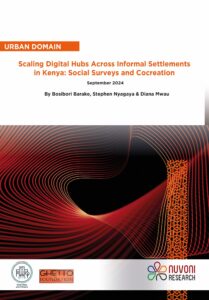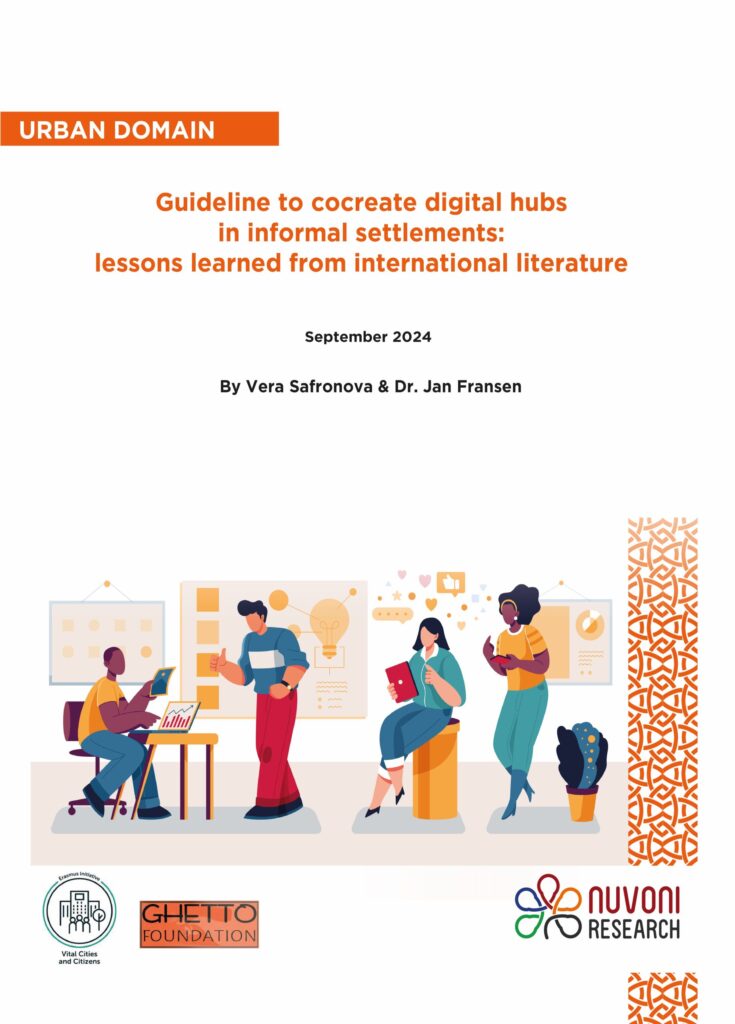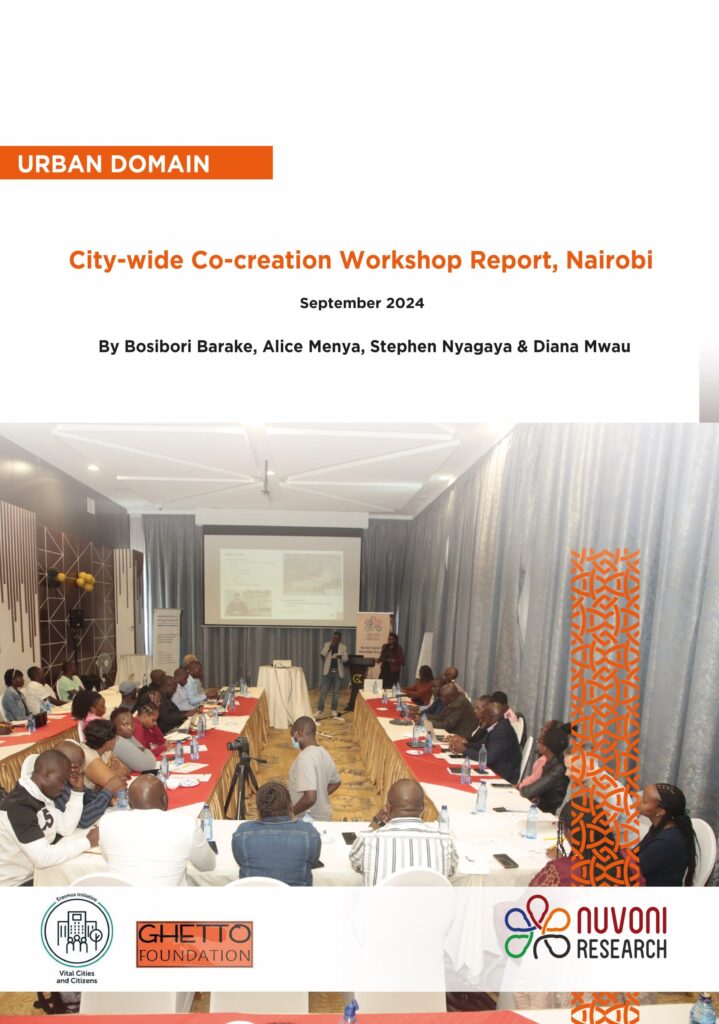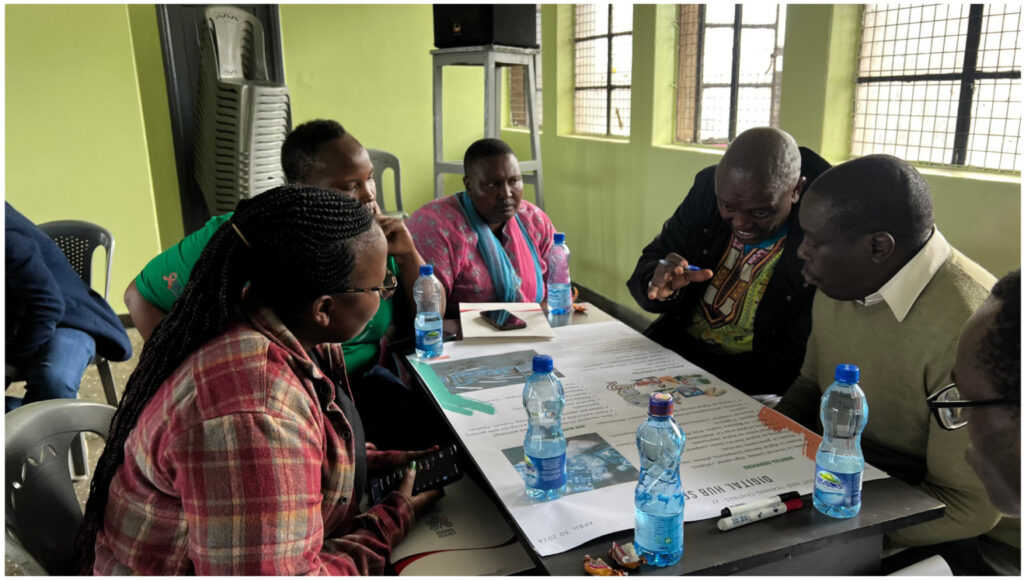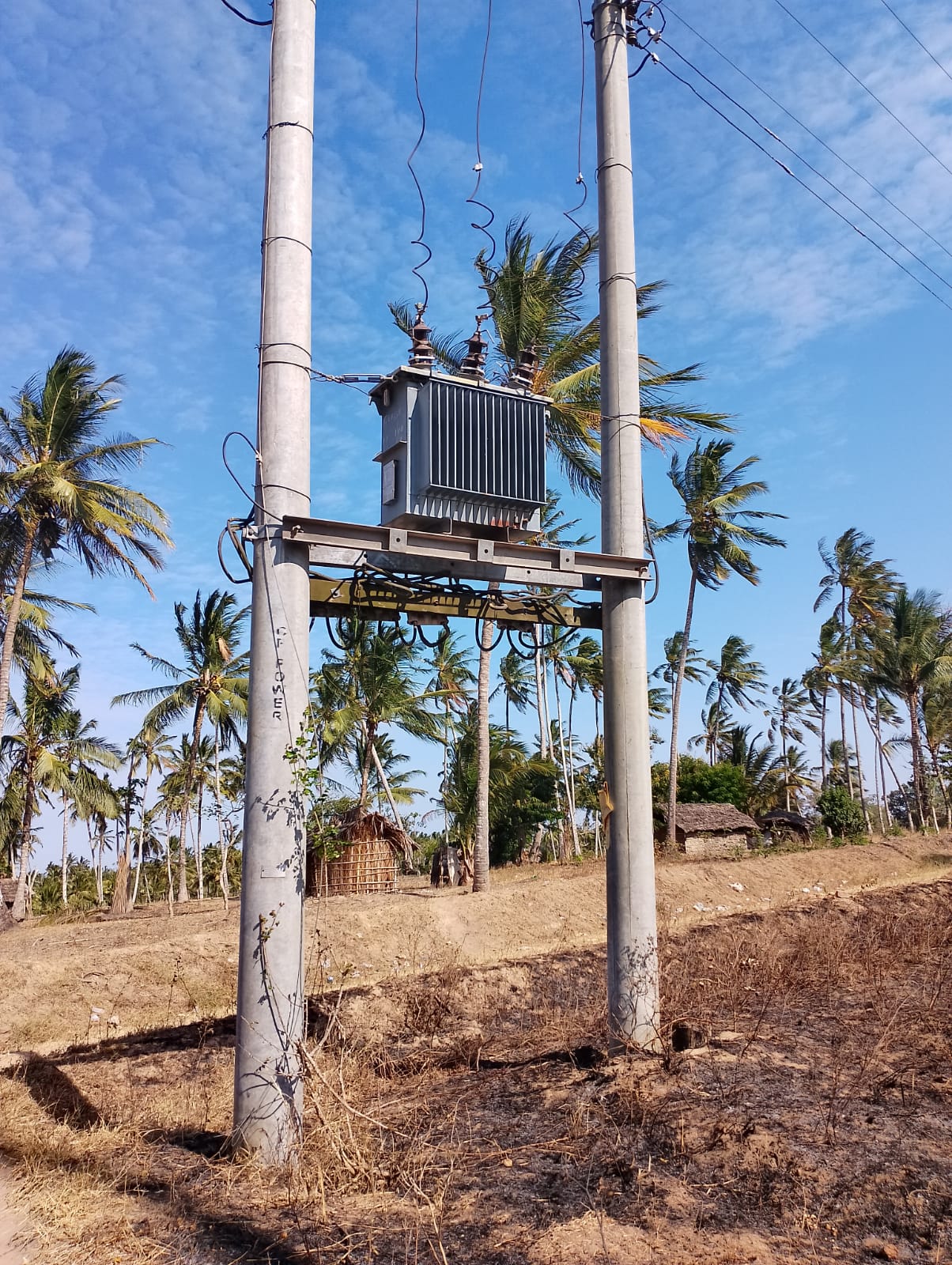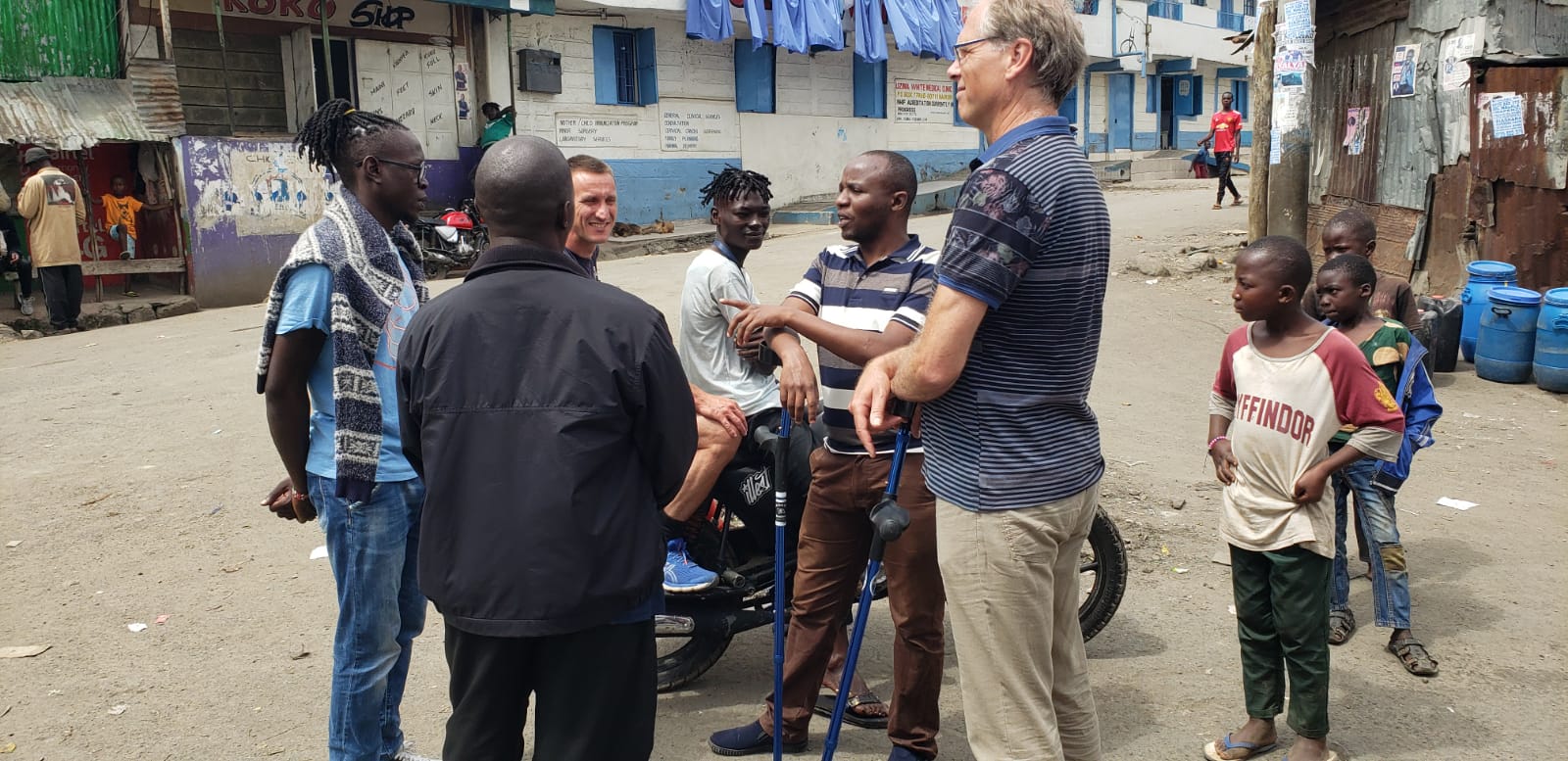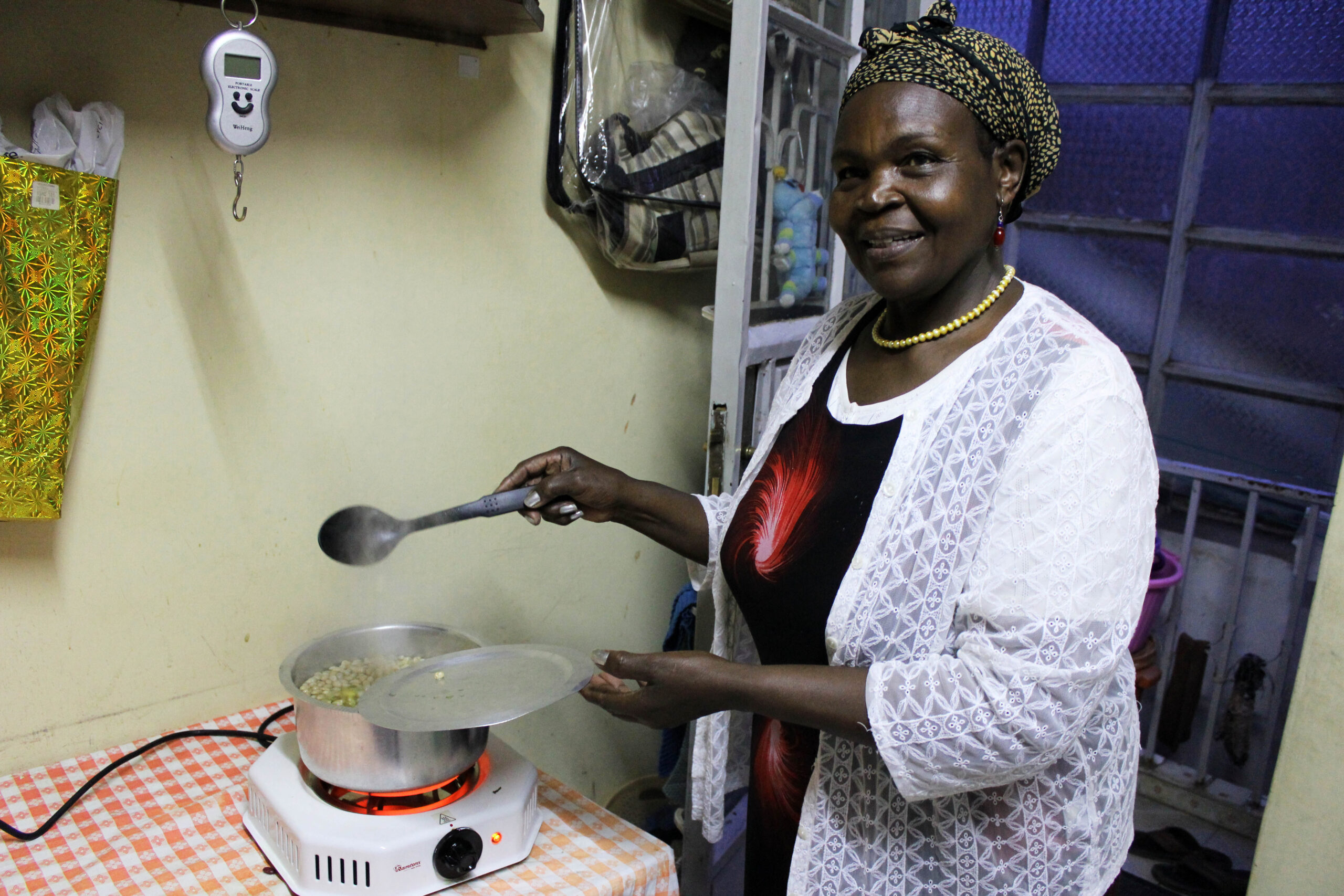project details
Digitalisation and Resilience in Informal Settlements
Research Area
Urban Development
Project Status
Completed
Start Date
Jan, 2022
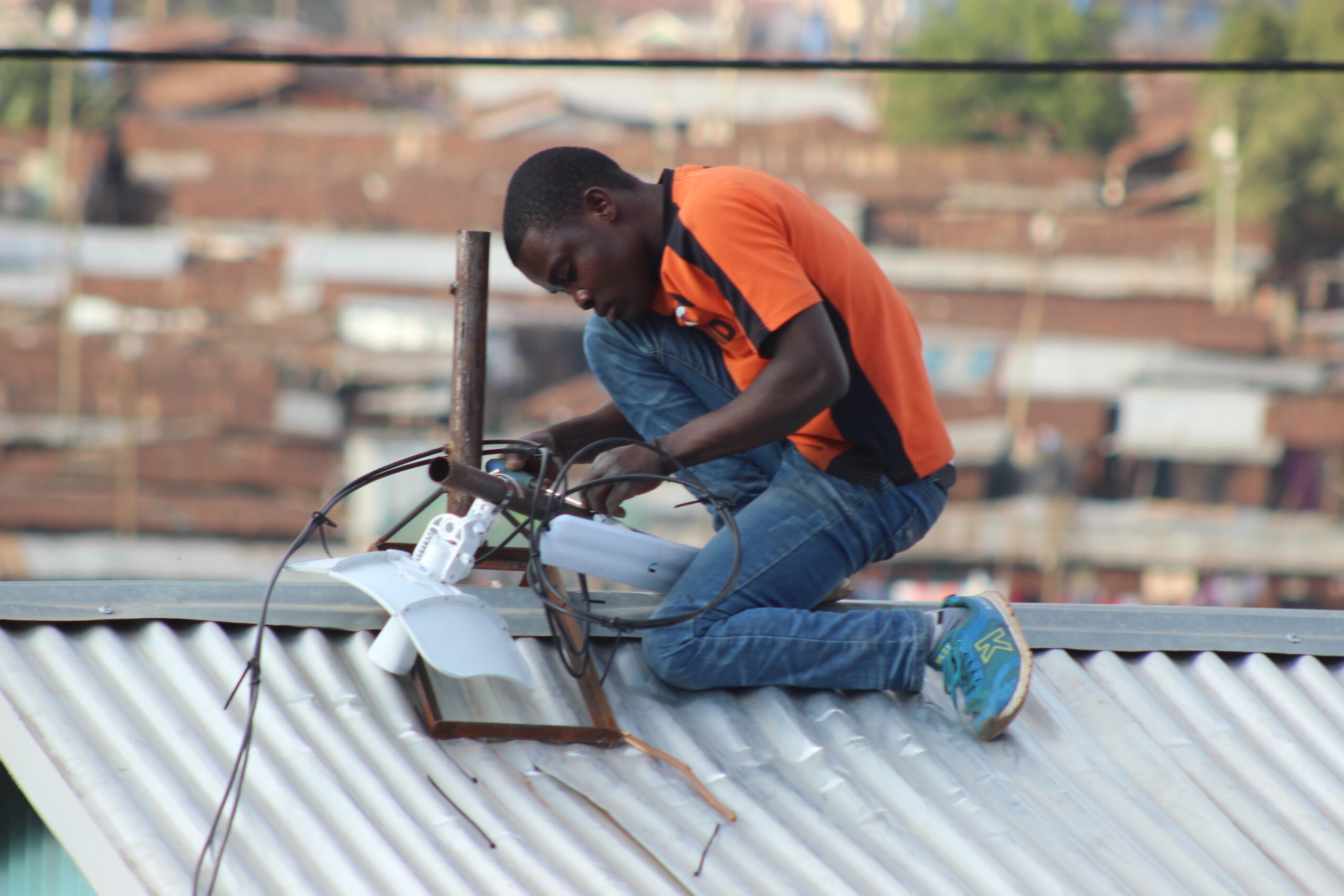
Introduction
This project, conducted in two phases, explores the role of digital platforms and hubs in improving the resilience and livelihoods of residents in Mathare, Nairobi. Phase 1 focused on understanding how access to and use of digital platforms affects household resilience to shocks and disturbances in informal settlements. Phase 2 built on these findings by co-developing models for digital training and employment hubs designed to address digital exclusion and promote better livelihoods.
Phase 1: Digital Platforms and Household Resilience in Mathare, Nairobi.
This was an empirical research project that examined the ways in which access to and use of digital platforms varies between and within households in a large informal settlement in Nairobi, and how this influences the capacity of households to cope with shocks and disturbances.
Objectives of the Study
The study connected two contemporary trends: digital platforms and resilience. It explored ways in which access to and use of digital platforms by the urban poor in informal settlements influences their capacity to deal with the increasing intensity and complexity of shocks and disturbances. It also investigated how digital and non-digital services are (not) used in resilience activities at the individual, household, and community scales. The study culminated in a co-designed pilot digital hub as an accelerator lab to foster access to digital infrastructures and stimulate digital literacy, especially in disadvantaged communities.
Contemporary trends showed that informal settlers are vulnerable to an increasing number and intensity of shocks. Yet, their access to and use of digital platforms has increased, albeit unequally distributed between and within households. Digital platforms may enable informal settlers to become more resilient, but the variances in access and use across households may mediate the level of resilience during crises. Such variances in informal settlements have been understudied so far.
This research, therefore, investigated the differences in access to and use of platforms in Mathare Informal Settlement in Nairobi and assessed how such differences are associated with differences in the level of resilience between and within households.
Methodologies
This project adopted a case study approach, selecting Mathare slums as the study area. Mathare is one of the largest informal settlements in Nairobi, and the project partners have studied the informality, vitality, and resilience pathways in recent years. The research sought qualitative evidence based on a blend of desktop research, in-depth interviews among households and focus group discussions among residents, community leaders and children. The study was conducted in collaboration with community researchers from Ghetto Foundation who partnered in this study.
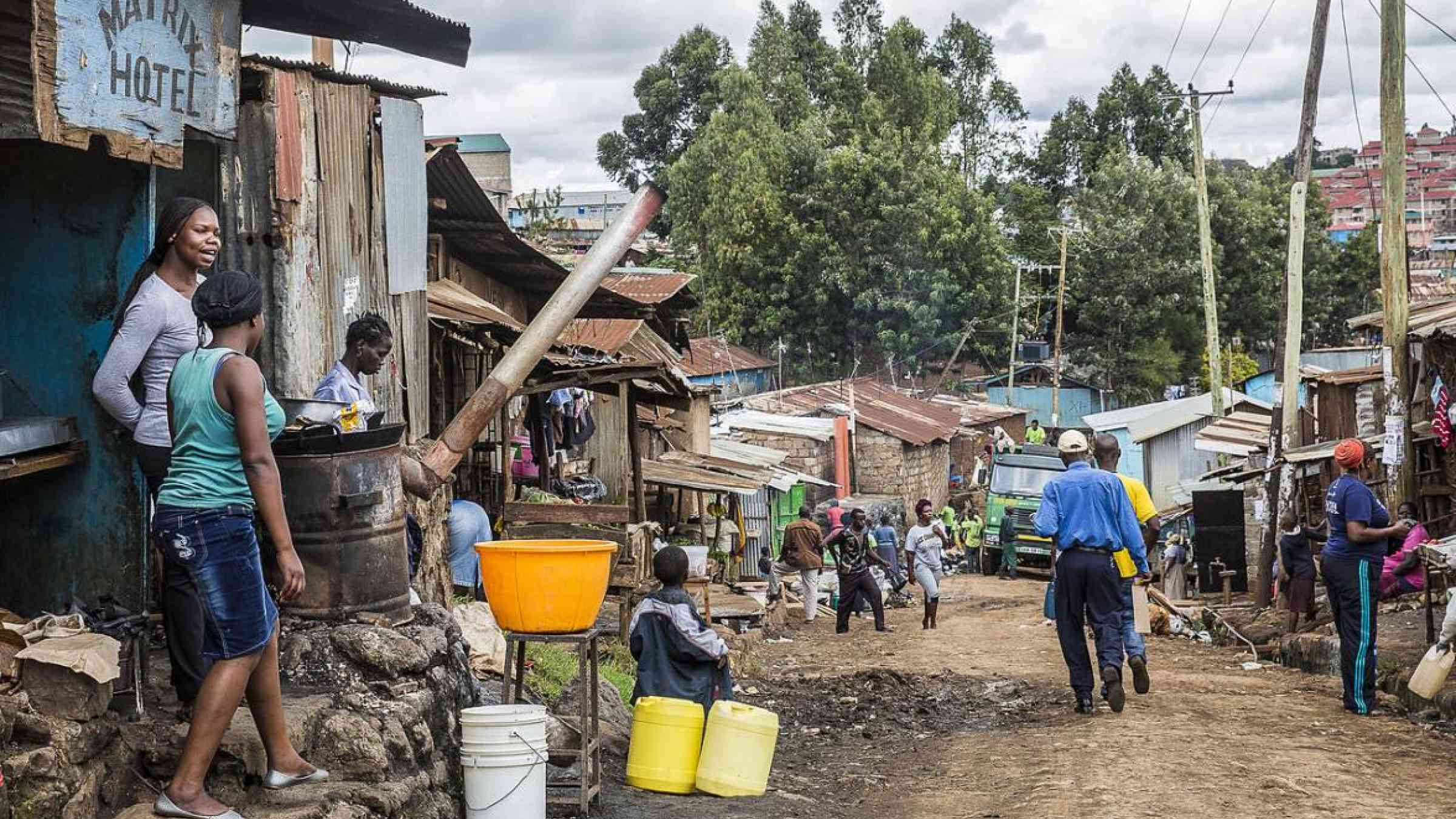
Phase 2: Digital Employment and Training Centres in Mathare
This project builds on the initiative above. During co-creation workshops with community members and local stakeholders, there was an apparent demand for developing digital hubs focused on livelihood development, particularly employment creation. In response, this project developed a model for digital training and employment hubs aimed at addressing the complex issues of digital exclusion in the context of informality and poverty. These digital hubs are envisioned as people-centered spaces that facilitate the appropriation of technology to enhance livelihoods in informal settlements. The hubs are designed as public-private-community partnerships with the potential to serve a variety of vulnerable groups in these areas.
Objectives of the Study
This study aimed to explore whether digital hubs can enhance the quality of life for residents in Nairobi’s informal settlements. It also examined what these hubs should look like to effectively address the specific needs and challenges of informal settlement residents. Additionally, the research considered whether this model could be replicated in other informal settlements. This aspect is crucial for the study’s potential contribution to shaping effective policy.
Methodologies
The study adopted an embedded case study approach. The four wards of the settlement—Mlango Kubwa, Mabatini, Utalii, and Hospital—served as the sub-units for our inquiry. The selection of these sub-units was aligned with the Information Communication Technology Authority (ICTA)’s plans to set up digital hubs in every ward across the country. The study acknowledged various significant aspects of Mathare embedded in these sub-units, including differences in target groups, ward locations, income levels, and access to the internet and services. These factors provided diverse perspectives that informed the development of suitable digital hub models based on location, function, and target groups.
A community-based participatory research approach was also used, co-designing and implementing the study with community researchers from Ghetto Foundation (GF), who are based in Mathare. The research team engaged throughout the process, supporting GF’s lobbying efforts to push for the implementation of the hub by ICTA.
In practice, the study employed a semi-structured literature review, semi-structured interviews (conducted in Mathare and with government officials), and workshops as the primary methods used to co-create the digital hubs.
Impact
Multiple benefits for Resilience
For households, the research has provided practical insights on how digital platforms can be used as a tool to boost their resilience during crises. For local leaders and policymakers, the study provided guidance on how they can reduce differences in household resilience caused by platforms. Additionally, since the project was undertaken in a settlement where upgrading is underway, the research offers better embedding of digitalisation into slum upgrading initiatives.
Cooperation and local capacities
Working with community researchers as partners in the project not only built on the knowledge and skills of residents to act in their community as agents for change but also fostered cooperation between researchers and local stakeholders. Also, both teams benefited from knowledge transfer and improved their research skills and practice
Multidisciplinary contribution
By bringing together the concepts of urban resilience and digital technologies in the context of social justice, equality and global development, the study has made a significant contribution to the existing literature on digital platforms and household resilience.
A replicable approach to co-designing digital hubs in informal settlements
The project has also contributed to policy development by providing a replicable approach and model for digital hubs in other informal settlements across Kenya. Its alignment with the Information Communication Technology Authority (ICTA)’s broader plans highlights the potential for scaling this model nationwide. Furthermore, by engaging community researchers throughout the process, the project strengthened local capacities and fostered a sense of ownership among residents, creating long-lasting benefits for the community.
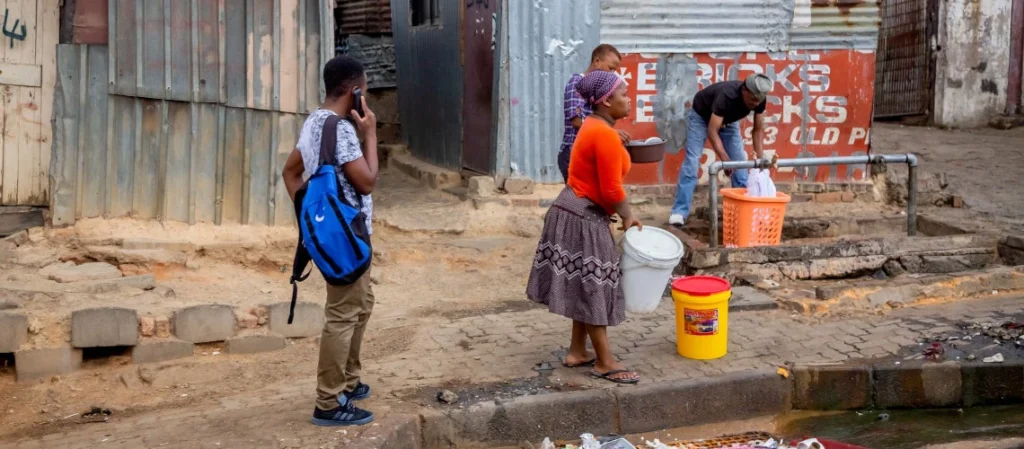
Project Outputs
See More Projects
Physical Address
No. MK088, Ushindi West Avenue,
Mukuyu Rd (Mukuyu West Wing), Thome 1
Nairobi, Kenya
Organization
Subscribe for newsletter & get news, events and publications updates
Contact Us
Office Tel: (+254) 20 8009928 |
Mobile: (+254) 706 324 467
© 2026 Nuvoni Research

